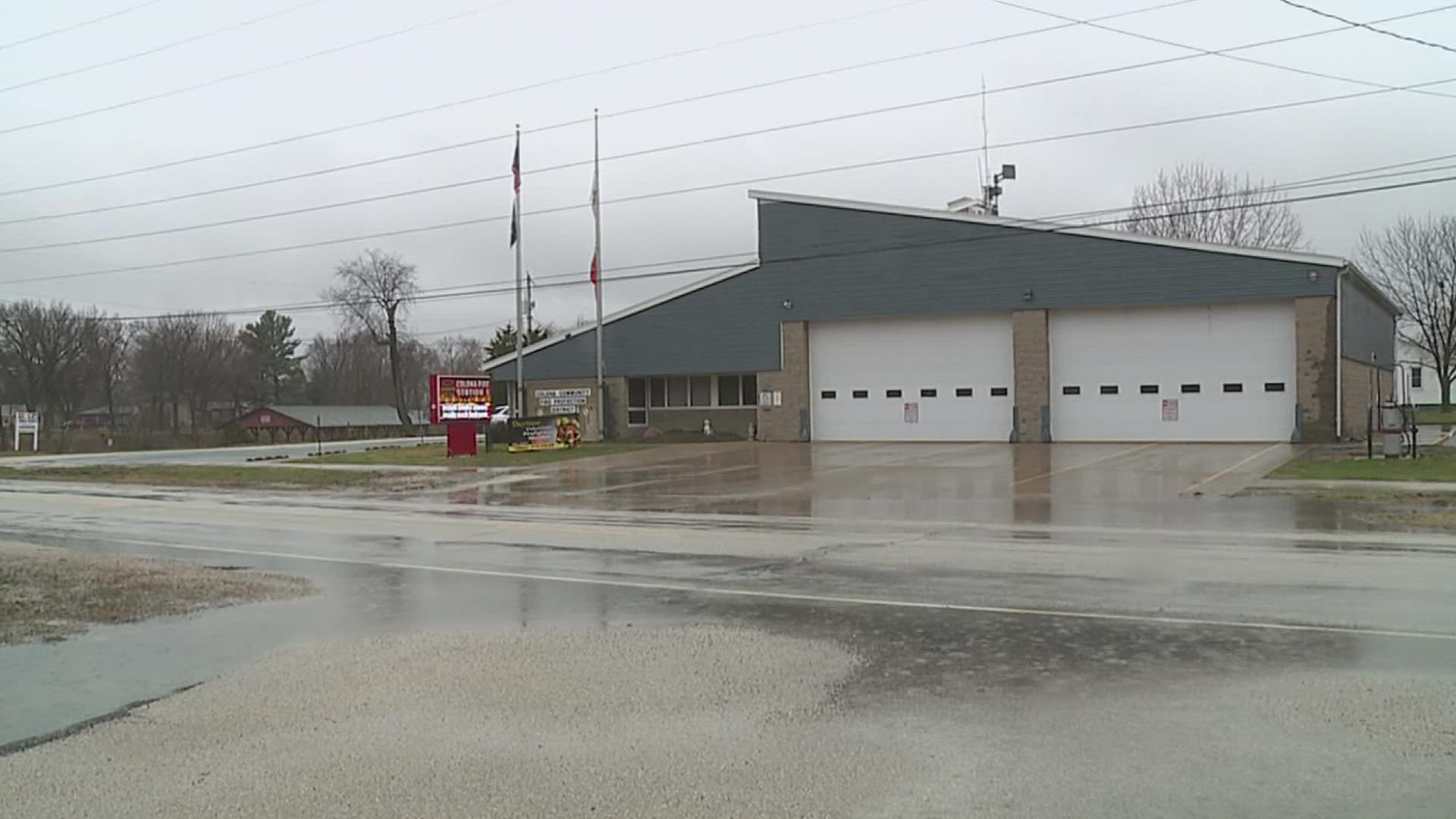COLONA, Ill. — Rural fire departments are facing a severe staffing shortage right now. Plus, those departments are struggling to recruit and retain new firefighters.
Colona firefighters are staying busy.
"We're getting 100 extra calls per year more over the last three years," Colona Fire Chief John Swan said.
Swan has been with the Colona Fire Department since 1976 and has been the department's chief since 1986. Swan said he is lucky if there are two or three firefighters available during the day to respond to calls.
In the past six months, Swan said he has only received two applicants for open firefighter position after placing signs outside the department's station on First Street.
Swan said the department is struggling to hire and retain new recruits as older firefighters retire each year.
"We're more than just firefighters," Swan said. "We do EMS, water rescue, technical rescue (and) auto rescue."
The Illinois Firefighters Association held a press conference with Illinois lawmakers on Wednesday with a proposed starting point toward a solution.
"The number of calls to fire departments tripling over the past 20 years," said Margaret Vaughn, a government affairs employee with the firefighters association. "Bear in mind that the majority of those calls are for EMS services while the number of volunteers is plummeting."
Those Illinois lawmakers have worked with the Illinois Firefighters Association on a tax credit proposal.
"It's going to serve as a benefit for volunteers that belong to the department and hopefully an incentive to stay on the department," Swan said.
In Illinois Senate Bill 3027, which passed in late February, volunteer first responders would receive a $500 tax credit.
To qualify, volunteer emergency service workers, including both firefighters and emergency medical workers, would need to have at least nine months of service in the applicable tax year and also make less than $10,000 in compensation for their duties, according to the bill.
"I think it's a thank you from the state, an appreciation for your service being a firefighter," Swan said.
On face value, $500 may not seem like much assistance. However, Swan hopes the bill could be amended in the next several years after it is passed to increase that tax credit benefit.
"It's a start. We have to start somewhere to show that we're going to give something back to these volunteers," Swan said.
That tax cut proposal is a starting point to giving the busy first responders a break.
The bill has only passed through the Illinois State Senate. It still would need to be taken up by lawmakers in the Illinois State House of Representatives before potentially heading to Gov. J.B. Pritzker's desk.
As written today, if the bill is signed, it would go into effect in 2023.

